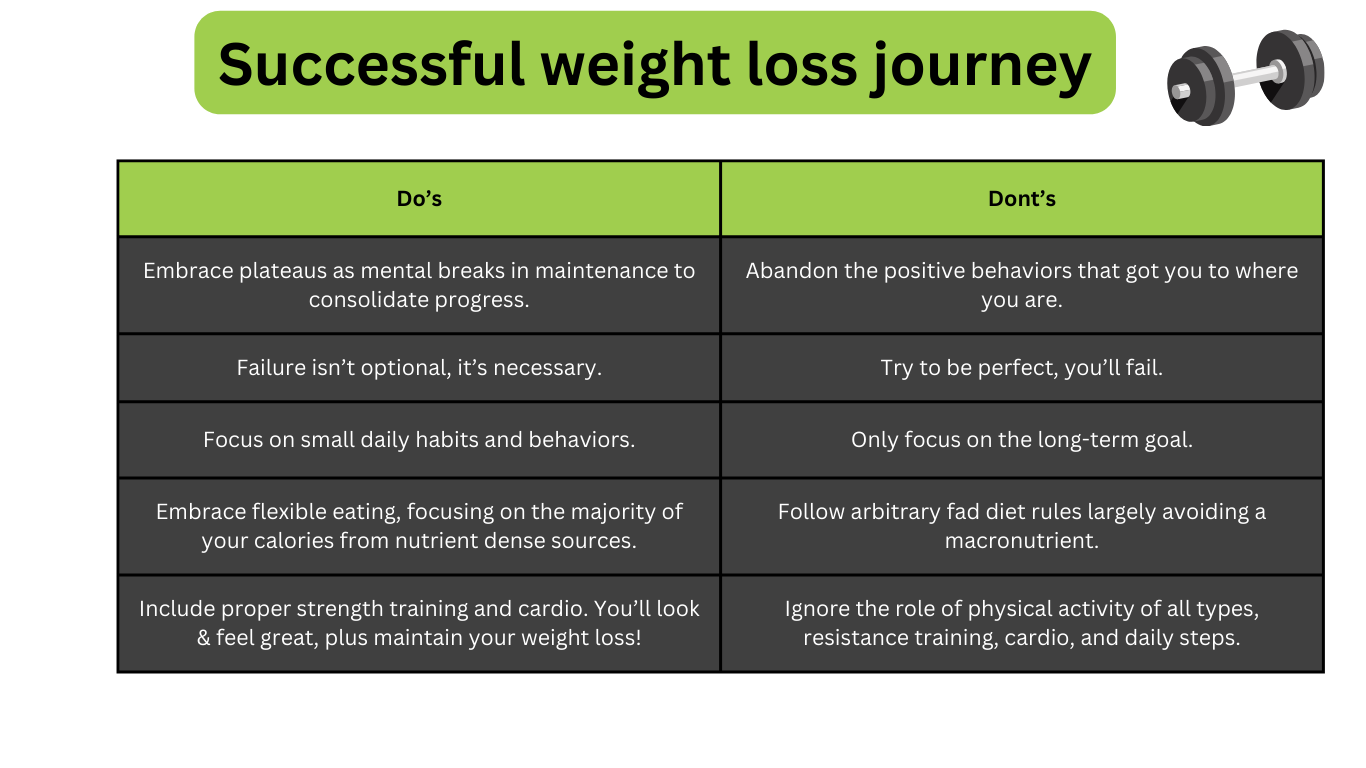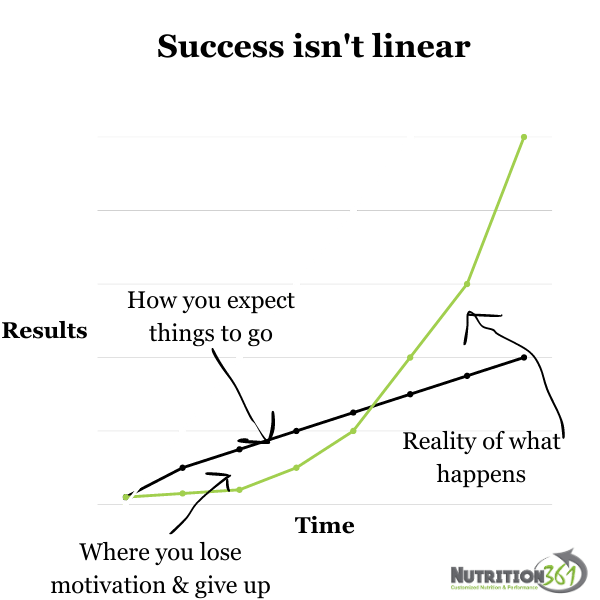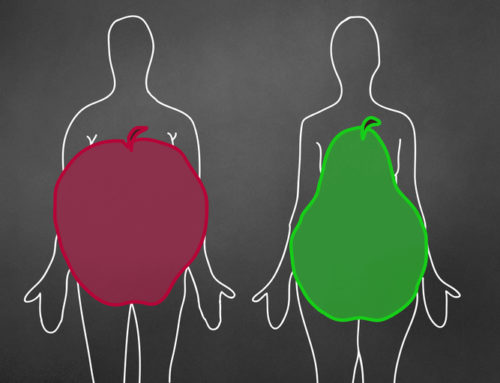The journey to weight loss is embarked upon by millions every year, driven by the desire for improved health, enhanced self-esteem, desire to feel and look better, and the prevention of chronic diseases. The importance of shedding excess weight cannot be overstated, as it is closely linked with reduced risks of diabetes, heart disease, certain types of cancer, and at a minimum improved outcomes for those with other health conditions.
In other words, don’t put off “the health thing” until later! I can’t stress this enough as I’ve coached many successful people who put career and other priorities first only to have a health scare to prompt them to reach out. Don’t wait, as nothing matters if you lose your health. Yesterday you said today, and once you are on the path to addressing your weight loss goal you’ll feel a great sense of purpose and happiness.
Satiety and feeling full is not the same for everyone
The path to achieving and maintaining a healthy weight is fraught with challenges, and in my experience coaching numerous individuals, everyone is not dealt the same hand due to genetic factors regarding appetite control and the ability to lose weight.
Many find it difficult to adhere to strict dietary regimens or consistent exercise routines, and for some, these methods alone are insufficient to reach their weight loss goals. This complexity necessitates the exploration of additional avenues for weight loss, among which pharmacological interventions have shown promising potential.
If you’ve reached the point where your options are gastric bypass surgery or using semaglutide, trying the latter seems prudent.
Maximizing your potential
Before diving further into this article, ask yourself if you’re leveraging the time you are on Ozempic, Wegovy, Moujouro (tirzepatide is the active ingredient, but has a similar mechanism of action as semaglutide), etc. Specifically, are you adopting habits you can carry forward after taking semaglutide?
How can you turn your disadvantage into an advantage? We’ve all encountered things in life where we can be successful in one area and struggle in others. This can be frustrating. As a coach, I’ve found helping clients draw from experiences where they’ve succeeded is a key to making long term, sustainable changes in diet and health. Weight loss efforts employing semaglutide medication are no different.

Introduction to Semaglutide as a Weight Loss Medication
In recent years, semaglutide has emerged as a groundbreaking option for weight loss, offering hope to those struggling with obesity and weight-related health issues. Originally developed for the treatment of type 2 diabetes, its effectiveness in facilitating significant weight loss has garnered widespread attention. Semaglutide represents a new frontier in the pharmacological approach to weight management, providing a novel solution for individuals whose weight loss journey has been met with limited success through traditional means.
How Does Semaglutide Work for Weight Loss?
Mechanism of Action of Semaglutide
Semaglutide operates through a multifaceted mechanism of action, primarily targeting the body’s glucagon-like peptide-1 (GLP-1) receptors. This engagement enhances the pancreas’s ability to secrete insulin in response to elevated blood sugar levels, simultaneously inhibiting the release of glucagon. But its role extends beyond just glucose regulation. Semaglutide also acts on the brain’s appetite centers, effectively reducing hunger and promoting a feeling of fullness. This dual action addresses both parts of the weight management (energy in side) equation: it helps control caloric intake and improves glycemic control, facilitating a reduction in body weight. Note that semaglutide will delay gastric emptying, which can cause one to feel nausea or as some say bubble guts. Anecdotally, the clients I’ve coached who were taking semaglutide say these effects wane in the short term, a few days after taking their weekly shot and more or less resolve overall in a few weeks. Note at a higher dose these effects may be amplified.
Role of Semaglutide in Regulating Insulin Secretion and Blood Sugar Levels
The influence of semaglutide on insulin secretion and blood sugar levels is pivotal. By enhancing insulin’s efficacy and curbing glucagon release, semaglutide ensures a more stable blood glucose environment. This stability is crucial for individuals with type 2 diabetes, but it also plays a significant role in weight loss. Stable blood sugar levels help prevent the spikes and crashes that can lead to increased appetite and overeating. Furthermore, by improving insulin sensitivity and glucose uptake, semaglutide supports the body’s natural metabolism, contributing to more effective weight management.
In conclusion, semaglutide offers a promising avenue for weight loss, particularly for those who have found traditional methods challenging. Its ability to regulate appetite and improve glycemic control addresses the complex needs of individuals struggling with obesity. As with any medication, it is important to consider semaglutide as part of a comprehensive weight loss strategy, including diet, exercise, and lifestyle changes. The advent of semaglutide as a weight loss aid marks a significant step forward in the fight against obesity, offering renewed hope and a potential pathway to achieving a healthier weight and improved overall health.
Appetite Suppression and Reduced Cravings with Semaglutide
One of the most significant benefits reported by users of semaglutide is its ability to suppress appetite and reduce cravings. This effect is a game-changer in the realm of weight management, where hunger and the temptation to indulge in unhealthy foods often derail progress. Semaglutide’s action on the brain’s appetite centers leads to a decreased desire to eat, helping individuals adhere to their dietary plans more easily. Moreover, by mitigating cravings, semaglutide supports healthier food choices, facilitating a more sustainable weight loss journey. This dual benefit not only aids in reducing caloric intake but also empowers individuals to regain control over their eating habits, paving the way for long-term success.
Maintaining a Calorie Deficit
While semaglutide can suppress appetite and reduce cravings, its effectiveness is due to allowing you to maintain a caloric deficit. Weight loss fundamentally occurs when energy expenditure exceeds energy intake, and semaglutide is most effective when it supports this balance. Adopting a protein rich, nutrient dense diet and engaging in regular physical activity are essential components of a successful weight loss strategy with or without semaglutide. It’s not a license to eat without restraint; rather, it’s a supportive measure to make maintaining a caloric deficit more manageable. Put differently, semaglutide gives you the ability to have the satiety signals of normal weight individuals.
Many of you reading this article have no doubt been through the fad diet
The Diet Cycle: Fad Diets Don’t Work

Common obstacles and solutions for weight loss and Semaglutide
Obstacle 1: Experiencing a plateau in weight loss is a common challenge, often demoralizing for many on their weight loss journey. I describe the following scenario to clients. You start off as an SUV in terms fuel efficiency as you have a big body and big engine, i.e. most overweight individuals have substantial muscle mass for locomotion and bone density from carrying excess weight. Bigger bodies burn more calories as it takes more energy to move that body. Your brain and satiety signals are set to maintain that bodyweight.
If on your weight loss journey you neglect strength training to maintain as much muscle mass and bone density as possible, you’ll turn yourself into a small compact car. Your brain still wants you to be that SUV, however you burn calories like a compact car. In other words, ss individuals lose weight, they may also lose muscle, which can slow down the metabolism because muscle tissue burns more calories compared to fat tissue. This metabolic slowdown can lead to a weight loss plateau.
Solution 1: Turn yourself into a sports car where you have a sleek body with big engine under the hood. So when you move, you are a gas guzzler. Incorporating strength training into one’s routine can help build muscle mass, boost metabolism, and break through the weight loss plateau. This approach highlights the importance of not just focusing on the scale but also on body composition and metabolic health as key factors in long-term weight management success.
Obstacle 2: Struggling to find positive, sustainable lifestyle changes and habits. It’s one thing to achieve a weight loss goal, it’s another thing to maintain weight loss.
Solution 2: The latter requires adjustments in attitude toward food and fitness. Transitioning to lifestyle changes and habits that support weight loss is essential when using semaglutide. It’s not just about dieting but adopting a holistic approach that includes healthy eating, regular physical activity, and mental well-being. Finding the right balance of activities that you enjoy and can maintain long-term is crucial. Whether it’s walking, cycling, yoga, or any other form of exercise, consistency is key.
Similarly, dietary habits should not feel restrictive but rather sustainable and enjoyable, focusing on nutrient-rich foods that support overall health. These lifestyle adjustments enhance the effectiveness of semaglutide, making the weight loss journey more sustainable and enjoyable.
My approach is to encourage clients to seek at least 80% of energy intake from nutrient dense sources and the rest from whatever you choose within the context of your goals. Over time, your palate will change as your gut microbiome adapts. Pay attention to your energy levels and how you feel after eating. Noticing you feel good will drive future behavior.
Obstacle 3: You are surrounded by people who have many of the same bad habits you are trying to break free from. Some of these individuals are normal weight and confuse that with being healthy. They project their experiences onto you. However, you’ve been dealt a different set of cards genetically (note their bad habits will catch up to them). As a result, your efforts to change your habits are met with skepticism or resistance. You say you are going for a workout and they say, why would you do that? You choose a healthy food option at home vs going out and they make you feel like you are missing out. These are all scenarios I’ve encountered with clients. Many of these people don’t have bad intentions, they just have a different attitude towards things.
Solution 3: As the saying goes, if you want to soar with the eagles, you can’t hang with the turkeys. This does not mean you have to cut loved ones out of your life. Rather, get around driven people that don’t talk you out of your goals, but encourage you to achieve your goals and strive for more. This can be as simple as joining a small group fitness gym where you are surrounded by positive people looking to improve their health.
Obstacle 4: Sleep is often an overlooked factor in weight loss, yet it has a profound impact. Lack of sleep can increase appetite and cravings, making it harder to stick to healthy eating habits. Furthermore, poor sleep can affect insulin sensitivity, complicating the management of blood sugar levels and potentially slowing weight loss. Ensuring sufficient and quality sleep enhances the body’s metabolic functions and supports the effectiveness of semaglutide in weight management. If you have an erratic, inconsistent bedtime routine, and circumstances make this more challenging, you can always be improve.
Solution 4: Ensure you are getting enough sleep to support weight loss and weight loss maintenance. It’s essential to establish a consistent sleep schedule by going to bed and waking up at the same time every day, even on weekends. Creating a pre-sleep ritual, such as reading, meditating, or taking a warm bath, can help signal to your body that it’s time to wind down. Optimizing your sleep environment is crucial; invest in comfortable bedding, keep your room cool, dark, and quiet, and limit exposure to bright lights and electronic screens at least an hour before bed.
Your diet plays a significant role in sleep quality. Avoid caffeine and alcohol, particularly in the hours leading up to bedtime, and maintain a balanced diet rich in fruits, vegetables, lean proteins, and whole grains. Stay hydrated throughout the day but reduce fluid intake closer to bedtime to minimize disruptions during the night. Regular physical activity is beneficial, with morning or afternoon workouts being ideal, as intense exercise close to bedtime can interfere with sleep.
Managing stress through mindfulness, meditation, or yoga can promote relaxation and better sleep. Organize and prioritize your tasks to reduce stress and anxiety. Limit naps to short periods (20-30 minutes) early in the afternoon, as napping later in the day can disrupt nighttime sleep. Reducing screen time, particularly blue light exposure, by using blue light filters on devices and establishing screen-free zones in the bedroom can also enhance sleep quality.
Exposure to natural light, especially in the morning, helps regulate your circadian rhythm, while spending time outdoors during daylight hours can further improve sleep patterns. Good sleep hygiene supports weight loss and maintenance by regulating hormones like leptin and ghrelin that control hunger and appetite, enhancing insulin sensitivity, and boosting metabolism. Quality sleep promotes optimal physical performance through better muscle recovery and growth, reduces cravings for high-calorie, sugary foods, and contributes to better decision-making around food choices. Implementing these practices can significantly enhance sleep quality and, in turn, support overall health and weight management.
Obstacle 5: Failure to manage expectations and being too focused on the goal can lead to failure. I’ve observed people thinking they are guaranteed to lose upwards of 100 lbs. or a similarly large proportion of their bodyweight in less than a year.
Solution 5: As a coach, I remind clients that enjoying the process and building good habits is the key. Results are of course part of this and losing 1 lb per week is really good, that’s 52 lbs. in a year! Zoom out. While semaglutide has proven effective, weight loss is a gradual process, and results vary from person to person. Some may experience rapid initial weight loss, whereas others may see slower progress. This variability can lead to frustration and disillusionment if expectations are not managed. Understanding that semaglutide is a tool to aid in weight loss—not a magic bullet—can help maintain motivation and commitment to one’s weight loss goals. Patience, coupled with consistent effort, is key to realizing the full potential of semaglutide in weight management. Embrace the grind as that is the key to maintaining your weight loss. If it comes too easy, you’ll miss out on valuable lessons.
In conclusion, overcoming a weight loss plateau, making sustainable lifestyle changes, building a supportive network, and ensuring adequate sleep are all pivotal elements in maximizing the success of weight loss efforts with semaglutide. These components work synergistically to not only enhance the effectiveness of the medication but also promote a healthier, more balanced approach to weight management. Recognizing and addressing these factors can lead to more meaningful, long-term success in achieving weight loss goals, illustrating the complexity and multifaceted nature of weight management. Lastly, the effectiveness of semaglutide can vary based on the dosage and individual responses. Some may not see desired weight loss results if the dosage is too low. Regular consultations with healthcare providers for dose adjustments can ensure the medication’s efficacy is maximized.
Obstacle 6: Incorrect Dosage or Lack of Dose Adjustment
Solution 6: The effectiveness of semaglutide can vary based on the dosage and individual responses. Some may not see desired weight loss results if they have a low dose. Regular consultations with healthcare providers for dose adjustments can ensure the medication’s efficacy is maximized.

Overview of solutions
These solutions should not viewed as all or nothing. Rather implement them to the degree you can and keep improving.
“Stay away from those people who try to disparage your ambitions. Small minds will always do that, but great minds will give you a feeling that you can become great too.”
—Mark Twain
What is NOT your problem
In researching this article, I found some suggesting that inadequate calorie intake is why some aren’t losing weight causing the body to go into “starvation mode.” Make no mistake about it, this is a myth. What I have observed is some people try to maintain too high of a calorie deficit (read more about deficits here, plus I added a table below) during the week (or another period of time) and end up binging over the weekend leaving them in energy balance. Combine a poor diet a couple days a week with a sedentary lifestyle, inadequate sleep, high stress levels and you get a weight-loss plateau due to being in energy balance. If someone is telling you that you are not losing weight because in absolute terms you are not eating enough, you are breaking the laws of thermodynamics. All work requires energy, there is no free lunch.
| Energy Deficits | % Below maintenance level | Pros | Cons |
|---|---|---|---|
| Conservative | 10-15% | Minimize muscle loss and perhaps facilitate building depending upon starting point. Easy to maintain. | Easy to fall back into maintenance with a slip up or mismeasurement, requires greater precision. |
| Moderate | >15-25% | Good balance of fat loss, maintenance of lean mass, and sustainability. | Slower results than an aggressive approach and harder to maintain than a conservative approach. |
| Aggressive | >25% | Faster results which can lead to greater motivation. | Likely to lose more lean mass. Hard to sustain. Performance may suffer. |
Conclusion
Maximizing weight loss on semaglutide involves a comprehensive approach that includes lowering overall calorie intake, incorporating regular physical activity, making healthy dietary changes, staying hydrated, managing stress, prioritizing sleep, and seeking support. By adopting these strategies, individuals can enhance the effectiveness of semaglutide, leading to more significant and sustainable weight loss outcomes. Embracing these practices can transform the weight loss journey, making it not just about losing weight but about gaining a healthier, more vibrant life.


